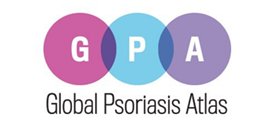11 December 2019
Global Psoriasis Atlas Launched
By sharing stories and statistics the Global Psoriasis Atlas is putting the focus on psoriasis.
 The Global Psoriasis Atlas is the first database documenting
the prevalence of psoriasis around the world. This exciting piece of research
means that for the first time, experts and people living with psoriasis can gain
a better understanding of how the condition is mapped globally.
The Global Psoriasis Atlas is the first database documenting
the prevalence of psoriasis around the world. This exciting piece of research
means that for the first time, experts and people living with psoriasis can gain
a better understanding of how the condition is mapped globally.
The interactive database has been formed from a collaboration between three leading worldwide organisations, the International Federation of Psoriasis Associations (IFPA), the International League of Dermatological Societies (ILDS) and the International Psoriasis Council (IPC), and is supported by work undertaken at the University of Manchester and University Medical Center Hamburg-Eppendorf.
The online platform brings together the latest data and compelling insights into psoriasis to present a global picture of the incidence of the condition and the various treatments that are available across the globe. It will be a valuable source of information for researchers, policy makers, healthcare providers, and people with psoriasis to gain a greater understanding of the condition.
Although mystery still surrounds psoriasis, significant progress has been made to further our understanding of the common immune-mediated skin condition. Research has shown that prevalence of psoriasis varies according to genetic background and geographic location, therefore, the atlas represents a novel opportunity to explore and compare the way in which psoriasis occurs in different groups of people across various environments.
The atlas will also help to raise awareness of the treatment options that are available for psoriasis worldwide, and plays host to valuable healthcare data which enables the comparison of the quality of care in different countries, such as the number of dermatologists working in the field.
Videos of people speaking about living with psoriasis are also included and provide a rich backdrop to the data, highlighting the similarities and differences between patient experiences of psoriasis in different countries including Taiwan, Malaysia and the UK.
At present the understanding of the prevalence of psoriasis is limited in many countries, but the Global Psoriasis Atlas is due to radically transform this in the future, and aim to uncover the true burden of the condition, with the goal of ensuring that those living with psoriasis have access to the best available care, wherever they live in the world.
To explore the Global Psoriasis Atlas visit www.globalpsoriasisatlas.org